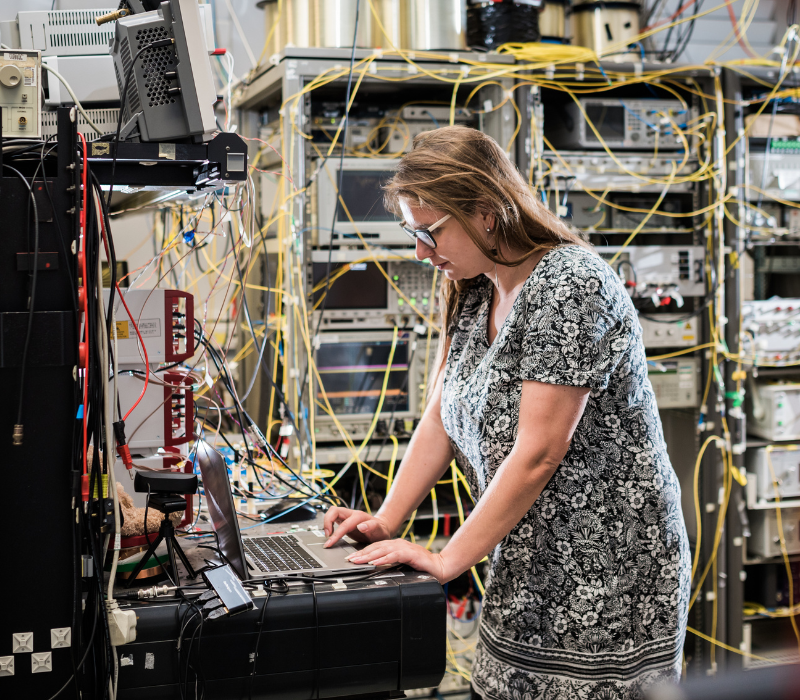
TRANSNET celebrates INWED 2023 - Q&A with Anastasiia
As part of our INWED 2023 celebrations, we have planned a series of blog posts to showcase and champion our fantastic female students and researchers. In this post, we are excited to spotlight our postdoctoral researcher Anastasiia Vasylchenkova.
National Women in Engineering Day is an international awareness day introduced by the Women’s Engineering Society (WES) to support, inspire, and raise the profile of women in engineering. Launched in the UK on 23 June 2014 to celebrate its 95th anniversary, it received UNESCO patronage in 2016 and went global for the first time in 2017 adopting its now familiar moniker, INWED.
Here, Anastasiia shares her insights on the barriers she faces as a young woman in engineering, why women should not have to be bear the burden of overcoming gender imbalance in engineering and what advice she would offer to young women interested in the field of engineering.
What motivated you to pursue a career in engineering?
I have enjoyed in school exploring the reasons for events and identifying causal relations. Science can bring models, models can be validated and upgraded, and approved models can give insights on how to build machines and tools. It always inspired me and motivated me to learn more.
Have you faced any challenges as a young woman in engineering? How did you overcome them?
In my school and university, there were few girls, but it helped value these co-support relationships - my school and university friends are mainly my life-long friends. This unity is quite helpful when facing problems with employment, when it comes to difficult life choices and dilemmas between family and career.
The biggest gender-related obstacle I cannot stop shouting about is immigration barriers. As an unmarried young woman, I am always seen as a risky visa applicant. I have received several rejections for UK and US visas, when my male colleagues at the same profile have gotten them easily. It does not matter to the visa officers that I am a scientist and that it is a part of my job to present my research and build a professional network at the conferences. Visa delays and rejections did a lot of harm to my career.
Do you have any positive role models or mentors in engineering that you look up to?
I was always lacking a role model. Without such a person all choices and moves feel a bit blind - like explorers were travelling through Africa or searching for the South Pole. The most inspiring lady I met was the sister of my former colleague, a mother of two and a professor in mathematics at Goteborg University. Though, when I think that she had to work for several years in another Swedish university north of the Arctic Circle, it seems to be a challenging work environment for me.
The concept of the role model is problematic. On the one hand, it is our duty indeed to take care of future generations of girls and demonstrate to them the pros and cons of an engineering career. Although, it is just more burden for female professionals, which we get extra anyway; we serve on committees for gender balance, and we are expected to do more on average. I am not sure we should expect all female engineers to take this burden.
What do you think the future will look like for women engineers?
I do not think the current trend will change significantly. My main hope is that equality will be achieved by changing the system, recruitment procedures and flexibility in working patterns, but not by more training in resilience and imposter syndrome. We will see more women in engineering and in management, which will boost creativity and growth. Together with the current trend of work-life balance improvement, it will help in achieving a healthier society.
What advice you give to young girls and women who are interested in engineering?
It makes perfect sense to be driven by passion: on making a better world, on developing the technologies of tomorrow. But it also makes sense to be driven by value for oneself: career steps and accepting offers should never hurt personal life. Do not hesitate to put yourself, your values, and your priorities, into consideration when speaking of workload, training, position, salary, and leave policy.